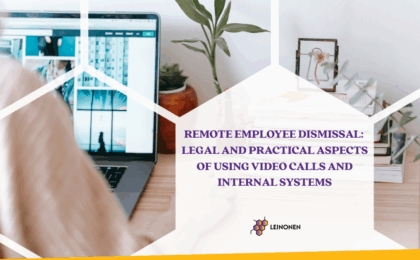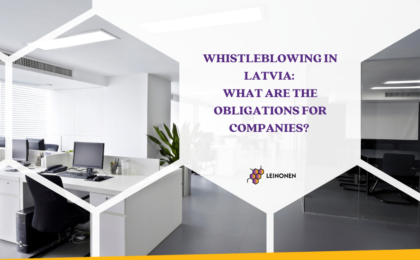Boasting reduced corporate tax rates, outstanding trading infrastructure and three special economic zones supporting corporate growth, Latvia is a popular EU base for foreign-owned businesses.
When employing in Latvia, having sound knowledge of local employment laws is paramount. This blog post covers all the basics you need to know about public holidays in Latvia as an employer.
What are Employees Legally Entitled to During Public Holidays in Latvia?
Generally, employees in Latvia are not obliged to work on official public holidays. The only exception to this rule is if they work in an industry where continuity of work is necessary. If this is the case, employees are entitled to additional compensation of no less than 100% of their hourly or daily wage, or an extra paid holiday day. The employer must also notify the employee in advance if they are required to work on a public holiday.
If there is a constant need to work on public holidays, applicants must be informed of this condition when they apply for a job. This can then be written into a company’s internal regulatory act, and the type of compensation for work on these holidays can be agreed upon from the outset to be applicable in all cases.
The Labour Law does not specify what it means for continuous work to be necessary. However, employees can dispute if they do not think their employer’s reason for asking them to work a public holiday is valid. In this case, it is up to the employer to prove that they have legal grounds to require work on a public holiday (a legitimate need for continuity of work).
Can Employers Offer Additional Benefits for Work on Public Holidays?
Some employers choose to offer better terms than the minimum legal requirements. For example, an employer may choose to shorten the day prior to a holiday more than the minimum of one hour, set additional days off around public holidays, or offer higher compensation for working on public holidays.
List of Public Holidays in Latvia
- 1st January: New Year’s Day
- 29th March (in 2024 – date varies): Good Friday
- 31st March (in 2024 – date varies): First easter day
- 1st April (in 2024 – date varies): Second easter day
- 1st May: Labour Day (Day of the Convocation of the Constituent Assembly of the Republic of Latvia)
- 4th May: Day of the Restoration of Independence of the Republic of Latvia
- 12th May: Mother’s Day
- 19th May (in 2024 – date varies): Pentecost
- 23rd June: Līgo Day
- 24th June: Jāņi Day (summer solstice)
- 18th November: Day of the Proclamation of the Republic of Latvia
- 24th to 26th December: Christmas
- 31st December: New Year’s Eve
Organising the days Around Public Holidays in Latvia (With Examples)
- If a holiday is preceded by a working day, this working day must be shortened by at least one hour.
Example: In 2024, Labour Day was on a Wednesday, so Tuesday’s workday was shortened. Conversely, Līgo falls on a Sunday, so Friday’s workday does not need to be shortened.
- If one working day falls between a public holiday and weekly rest time, employers can move this working day to another Saturday in the month to extend the holiday period. Working days transferred in this way are not considered overtime work.
Example: If a company operates from Monday to Friday and a public holiday falls on a Thursday, the employer may designate the Friday as another day off and make the following Saturday a working day instead.
Are any Public Holidays in Latvia Subject to Unique Regulations?
Yes – the Day of the Restoration of Independence of the Republic of Latvia (4th May) and the Day of the Proclamation of the Republic of Latvia (18th November) are subject to a unique regulation. If either of these holidays fall on a Saturday or Sunday, the following working day is designated as a public holiday.
Manage Payroll as a Foreign-owned Business in Latvia With Leinonen
Already trusted by 270 clients, Leinonen Latvia has been in operation for over a quarter of a century. As accounting and tax experts specialising in cross-border payroll, we stay updated on the latest Latvian employment regulations, helping foreign-owned businesses operate smoothly and lawfully in a new country. Get in touch to find out how we can support you as you establish your foreign-owned business in Latvia





